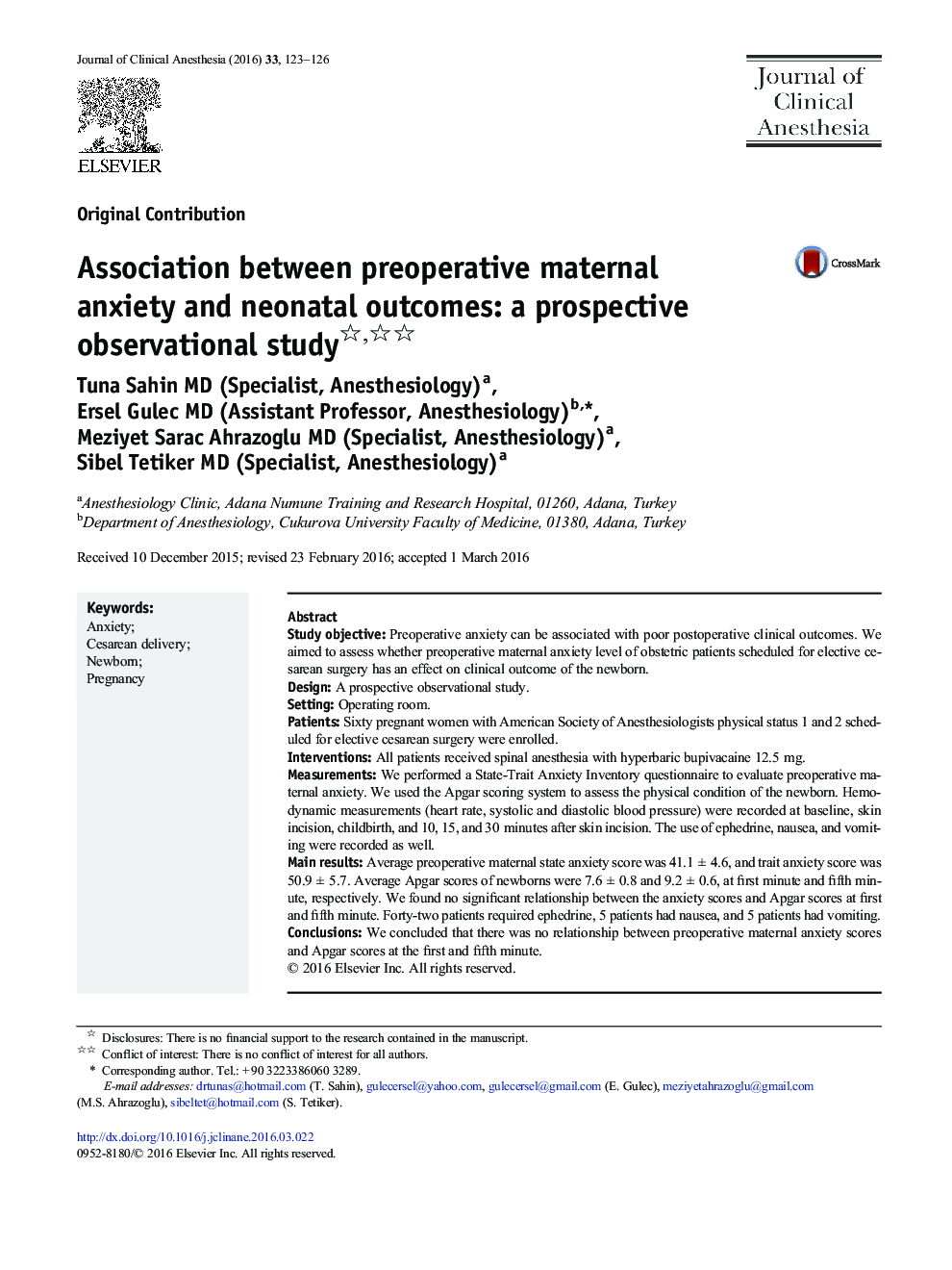| Article ID | Journal | Published Year | Pages | File Type |
|---|---|---|---|---|
| 2762101 | Journal of Clinical Anesthesia | 2016 | 4 Pages |
•Preoperative anxiety can be associated with negative clinical consequences.•Maternal anxiety during pregnancy can cause to negative neonatal outcomes.•Pregnancy and surgery are responsible for maternal anxiety.•Preoperative maternal anxiety has no relationship with poor neonatal outcomes.•Further studies are needed to define clearly the role of maternal anxiety on neonatal outcome.
Study objectivePreoperative anxiety can be associated with poor postoperative clinical outcomes. We aimed to assess whether preoperative maternal anxiety level of obstetric patients scheduled for elective cesarean surgery has an effect on clinical outcome of the newborn.DesignA prospective observational study.SettingOperating room.PatientsSixty pregnant women with American Society of Anesthesiologists physical status 1 and 2 scheduled for elective cesarean surgery were enrolled.InterventionsAll patients received spinal anesthesia with hyperbaric bupivacaine 12.5 mg.MeasurementsWe performed a State-Trait Anxiety Inventory questionnaire to evaluate preoperative maternal anxiety. We used the Apgar scoring system to assess the physical condition of the newborn. Hemodynamic measurements (heart rate, systolic and diastolic blood pressure) were recorded at baseline, skin incision, childbirth, and 10, 15, and 30 minutes after skin incision. The use of ephedrine, nausea, and vomiting were recorded as well.Main resultsAverage preoperative maternal state anxiety score was 41.1 ± 4.6, and trait anxiety score was 50.9 ± 5.7. Average Apgar scores of newborns were 7.6 ± 0.8 and 9.2 ± 0.6, at first minute and fifth minute, respectively. We found no significant relationship between the anxiety scores and Apgar scores at first and fifth minute. Forty-two patients required ephedrine, 5 patients had nausea, and 5 patients had vomiting.ConclusionsWe concluded that there was no relationship between preoperative maternal anxiety scores and Apgar scores at the first and fifth minute.
